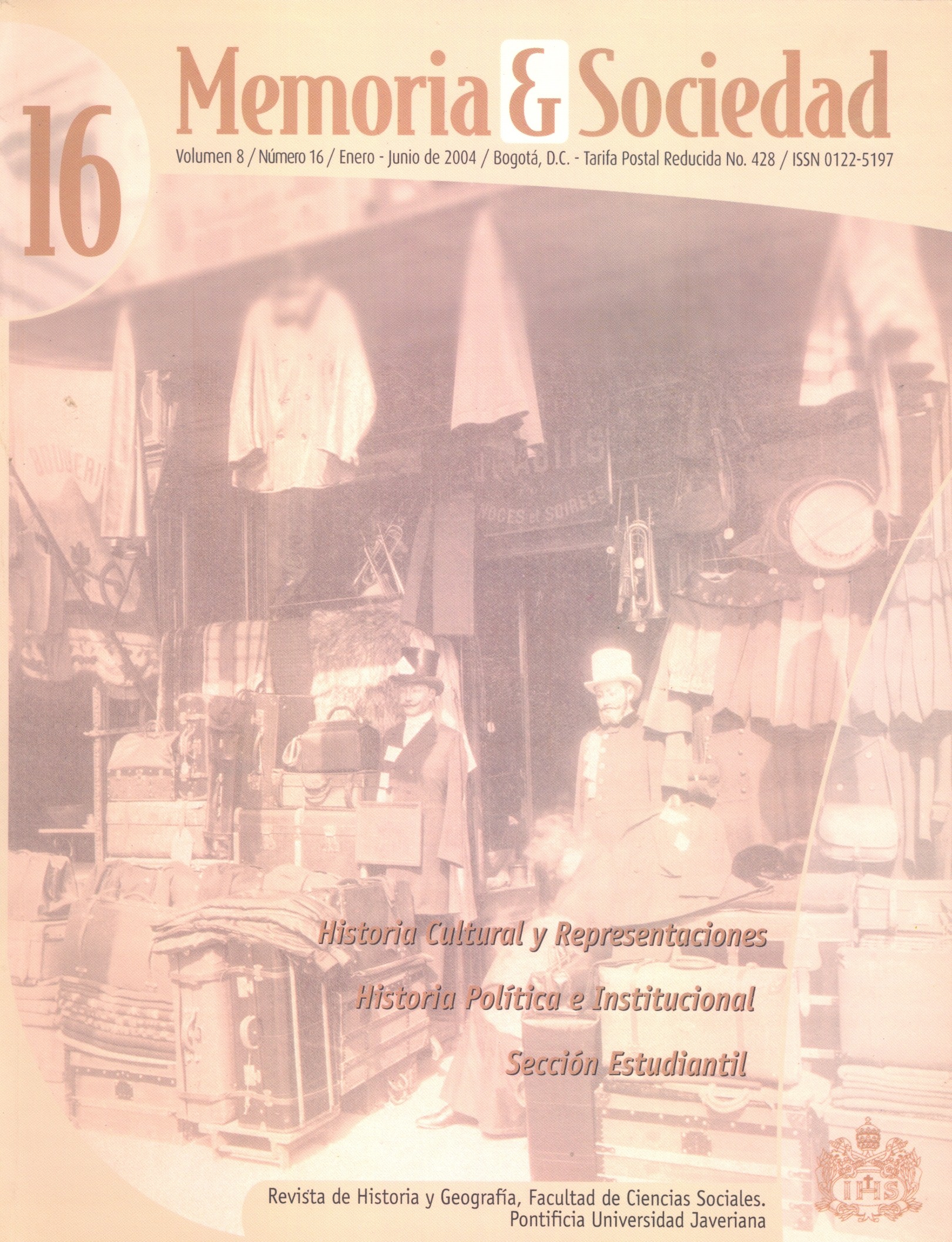Abstract
This work presents the way orality can be used as a tool to make history, bringing its value especially for studies mentality, private life or popular classes, between others. This study develops itself, according with an inter¬view that was made to a woman who lived in Pandi- Cundinamarca during the first half of the, 20th. Century. It tries to understand the cultural wealth that is found in the practice of the traditional rural medicine as the homemade medicine. Also tries to analyze the relation between the sense of the smell, the memory and the meaning of the smells that projects cultural constructions that are surrounded by dense and sometimes by unknown thoughts models. In this way, it tries to bring the sense of the smell as a way how human being notice, understand and preserve the world and their own life experiences. It has special characteristics as it reveals secrets that were hidden and unknown in the social body, which is not easy to express through visual and hearing sense.The journal Memoria y Sociedad is registered under a Creative Commons Attribution 4.0 International Public License. Thus, this work may be reproduced, distributed, and publicly shared in digital format, as long as the names of the authors and Pontificia Universidad Javeriana are acknowledged. Others are allowed to quote, adapt, transform, auto-archive, republish, and create based on this material, for any purpose (even commercial ones), provided the authorship is duly acknowledged, a link to the original work is provided, and it is specified if changes have been made. Pontificia Universidad Javeriana does not hold the rights of published works and the authors are solely responsible for the contents of their works; they keep the moral, intellectual, privacy, and publicity rights.
Approving the intervention of the work (review, copy-editing, translation, layout) and the following outreach, are granted through an use license and not through an assignment of rights. This means the journal and Pontificia Universidad Javeriana cannot be held responsible for any ethical malpractice by the authors. As a consequence of the protection granted by the use license, the journal is not required to publish recantations or modify information already published, unless the errata stems from the editorial management process. Publishing contents in this journal does not generate royalties for contributors.

